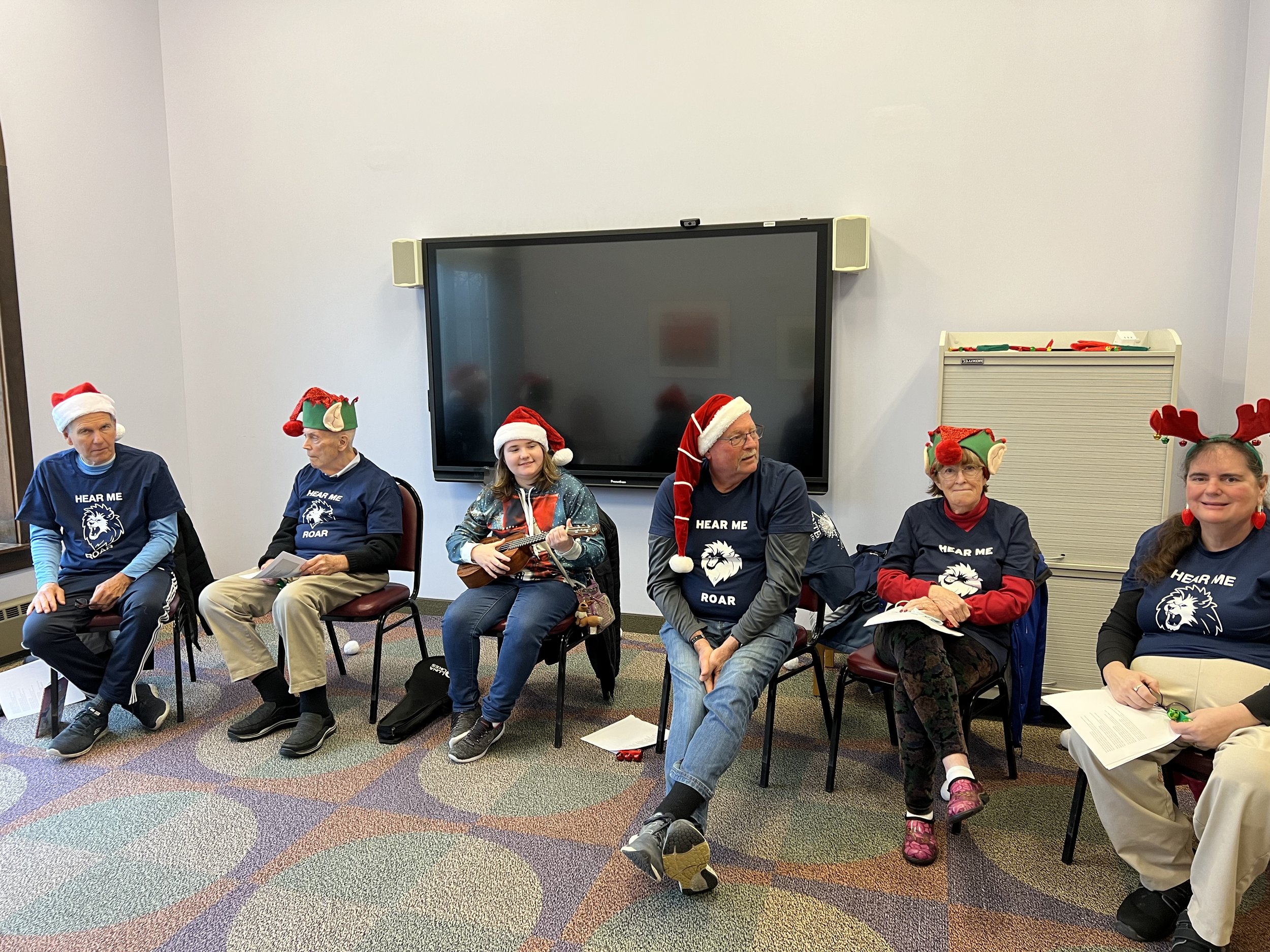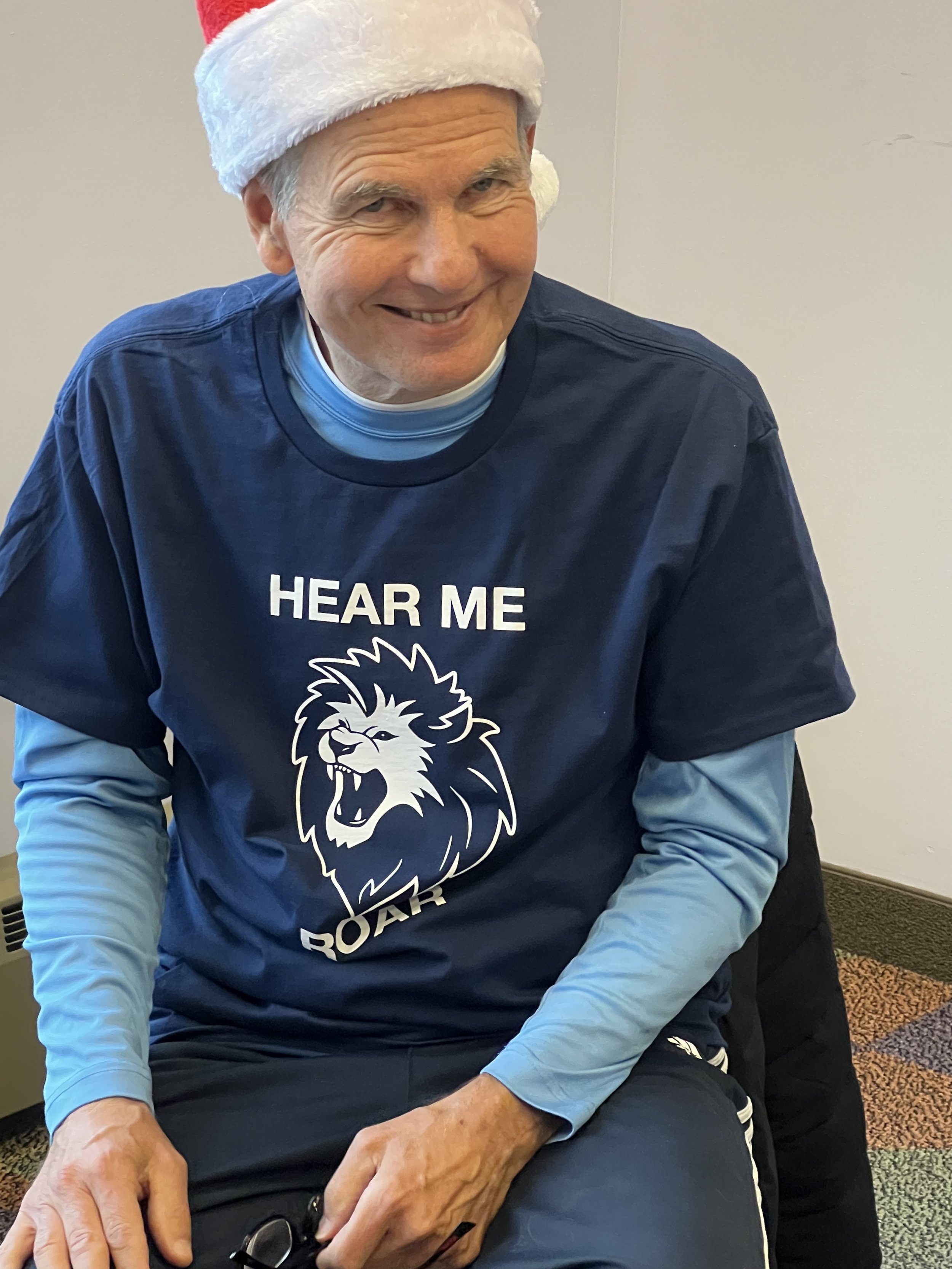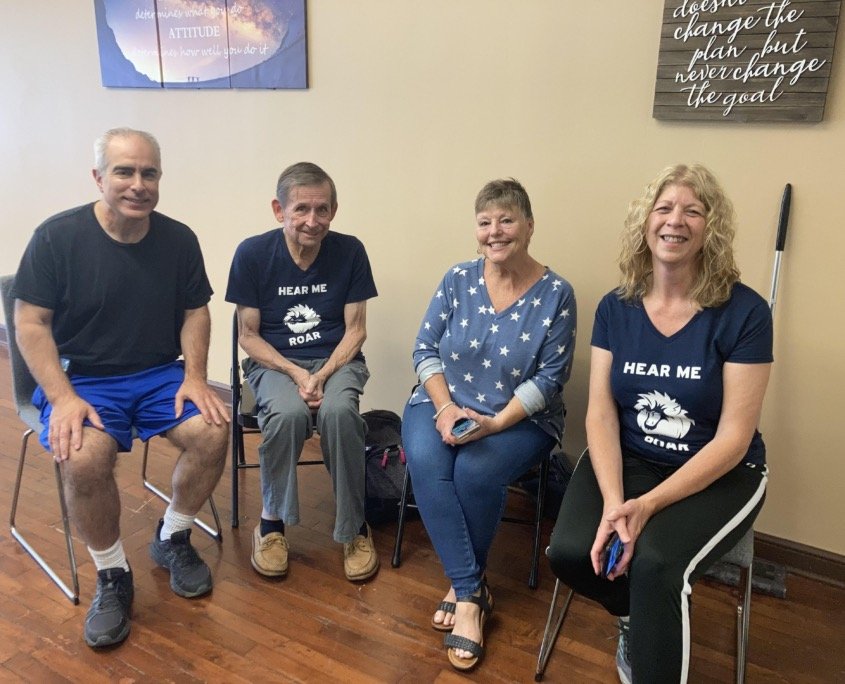Hear Me Roar
Voicing Support Group
Empowering Voices Affected by Neurogenic Conditions
Living with neurogenic conditions like Parkinson's disease can pose unique challenges, especially when it comes to voicing issues. However, a new and inspiring support group called "Hear Me Roar" is here to provide a safe and welcoming space for individuals facing these challenges. This support group not only aims to help participants improve their voices but also focuses on mutual support, education, and community outreach.
Choosing the Hear Me Roar program from the Star Center Foundation offers a holistic approach to managing Parkinson’s disease through the power of music and community, enhancing both physical and mental health in a supportive environment.
General Information:
"Hear Me Roar" is not just a support group; it's a lifeline for individuals with neurogenic conditions, offering them the chance to rediscover their voices, find support, educate themselves, and make a positive impact on the community. With a focus on empowerment and camaraderie, "Hear Me Roar" is creating a brighter future for those affected by these conditions, one song and one story at a time.
Meeting Dates and Times:
To Be Announced
Location:
Star Center Foundation
835 Sharon Dr. Suite 280 Westlake, OH 44145
Group Activities:
Singing Practice: One of the core activities of "Hear Me Roar" is singing practice. Singing is a therapeutic way to exercise vocal cords and improve voice quality. Members of the group come together to sing songs, share techniques, and learn from one another. This activity not only benefits vocal health but also lifts spirits and fosters a sense of camaraderie.
Mutual Support: Members of the support group offer each other invaluable emotional support. Sharing experiences, frustrations, and triumphs creates a sense of belonging and understanding that can be difficult to find elsewhere. "Hear Me Roar" is a place where individuals facing neurogenic conditions can find solace and encouragement.
Education: Education is a vital component of the support group. Participants have access to resources and information about their respective neurogenic conditions, vocal health, and strategies to manage their symptoms effectively. Guest speakers, including medical professionals and therapists, are invited to share their expertise and answer questions.
Community Outreach: "Hear Me Roar" also has a heartwarming community outreach program. Members of the support group visit local nursery schools to read to young children. This not only promotes literacy but also helps members regain confidence in their voices. It's an opportunity for individuals with neurogenic conditions to give back to the community while improving their communication skills.
Benefits of Joining "Hear Me Roar"
Therapeutic Vocal Enhancement: Engages patients with Parkinson’s in singing activities that improve vocal strength, control, and clarity, crucial for clearer and more effective communication.
Respiratory Health Improvement: Singing regularly helps strengthen respiratory muscles and improves breath control, essential for both vocalization and overall respiratory function.
Neurological Benefits: Singing stimulates the brain, promoting neuroplasticity, which can help in slowing the progression of Parkinson’s symptoms and improving cognitive functions.
Social Interaction: Provides a community platform for patients to interact and connect with others, reducing feelings of isolation and enhancing emotional well-being.
Emotional Upliftment: The act of singing, particularly in a group, can significantly boost mood and provide a sense of joy and accomplishment.
Cognitive Stimulation: Learning new songs and participating in musical performances helps sharpen cognitive abilities such as memory and
concentration.
Community Engagement: During the holidays, participants have the opportunity to perform for children in libraries or those experiencing hardships, fostering a sense of purpose and community service.
Swallowing Coordination: Singing uses the same throat muscles required for swallowing, helping to reduce the risk of dysphagia, a common issue in Parkinson’s.
Group Meeting Highlights Gallery




